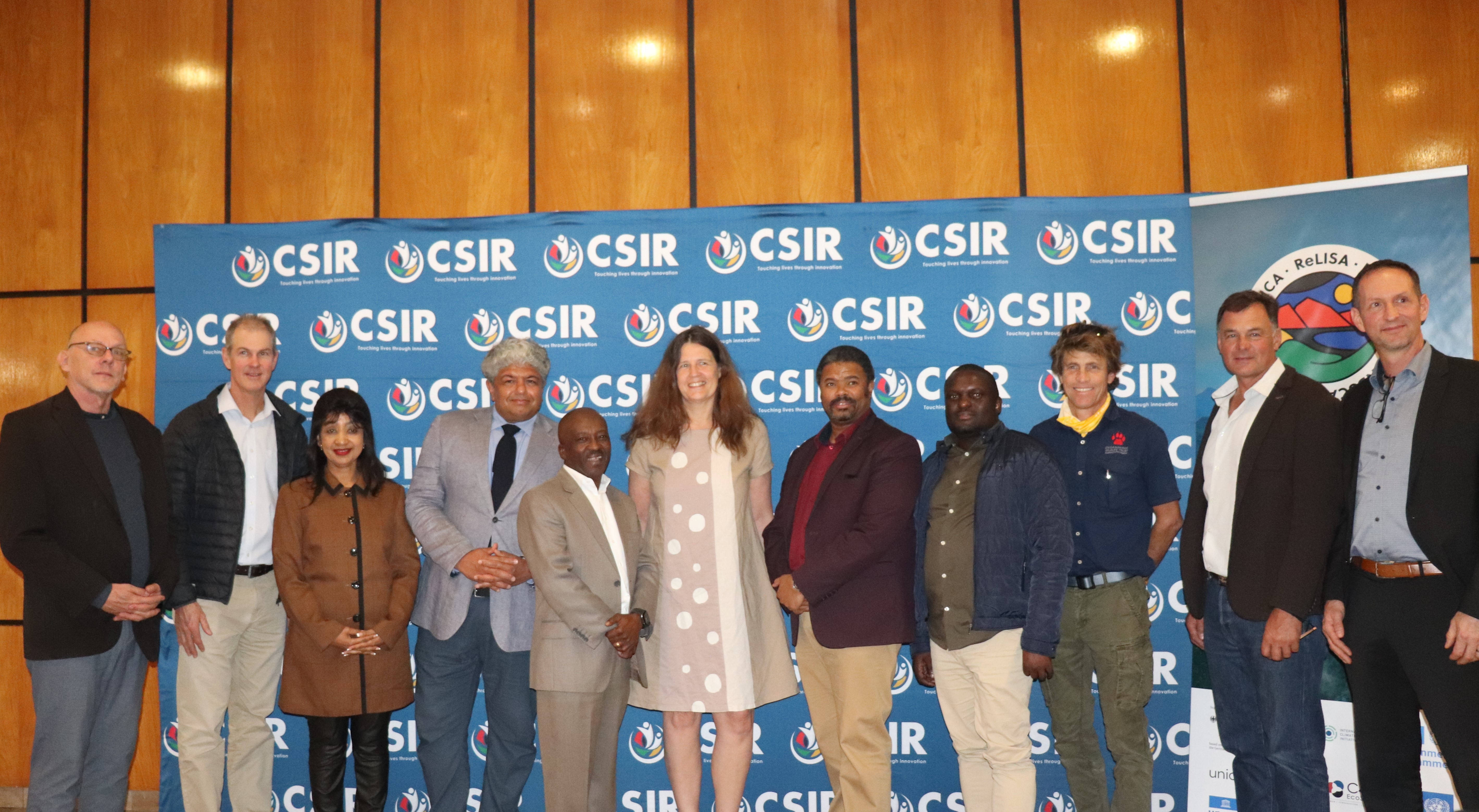ReLiSA national workshop
From 15 to 16 May 2023, the Council for Scientific and Industrial Research (CSIR) co-hosted a two-day national workshop with the Restoring Landscapes in South Africa (ReLiSA) for a consortium project at the CSIR International Convention Centre. ReLiSAs consortium project is led by the United Nations Environment Programme (UNEP). Over 80 delegates physically attended the workshop and thirty joined virtually.
The RELiSA project aims to make the economic case for landscape-level restoration and create the conditions for a just transition of South Africa’s land-use sector. This will be achieved by restoring degraded key biomes (grasslands, savannas and thicket), while recognising the sociocultural, economic and land tenure context. On-the-ground implementation, in consultation with stakeholders (communities, farmers and investors), will contribute effectively to adapt to climate change and address biodiversity loss, while improving the livelihoods of rural communities and commercial farmers.
“The highly interactive hybrid event was a success characterised with the cross pollination of ideas on landscape restoration among multiple stakeholders ranging from government departments, the private sector, think tanks, institutions of higher learning academics and policy makers,” said Dr Shingi Mutanga, Research Group Leader of the Climate Change impact area at the CSIR Smart Places cluster.
The ReLiSA consortium and implementing partners are like-minded and complementary organisations that aim to apply innovative nature-based solutions for landscape restoration. The consortium is formed by seven organisations, namely: UNEP; the CSIR; Endangered Wildlife Trust; United Nations Development Programme; United Nations Educational, Scientific and Cultural Organization; C4 EcoSolutions (Pty) Ltd and UNIQUE Land Use GmbH.
The CSIR leads an integral workstream for monitoring reporting verification and impact reporting. The outcomes of the project restoration activities will thus be compiled into the national Green House Gas (GHG) inventory and other United Nations Framework Convention on Climate Change reports, including the Biennial Transparency Report, Nationally Determined Contributions (NDCs), Convention on Biological Diversity reports and United Nations Convention to Combat Desertification reports.
The German Federal Ministry for the Environment, Nature Conservation, Nuclear Safety and Consumer Protection has invited the ReLiSA consortium to undertake the project preparation phase (PPP). The national workshop is a key part of the PPP of an integral process to finalise the project design based on government priorities and existing projects, stakeholder needs and priorities (including community and private sector), implementation risks and the potential for leverage and upscaling, ensuring the gender inclusive approach is taken.
During the PPP, which is between November 2022 and July 2023, the ReLiSA consortium is mandated to assess and validate the theory of change, assure the appropriateness of the proposed sites for restoration interventions, conduct a preliminary assessment of risks and mitigation strategies, identify options for early integration of private sector actors and coordinate with political partners to align with national policies.
After the conclusion of the PPP, the ReLiSA project is set to officially launch and its landscape models will drive a transformational change of South Africa’s land use sector. Effective restoration at scale helps to achieve South Africa’s inclusive green economy (including reducing inequalities) and environmental targets such as NDCs, South Africa’s Land Degradation Neutrality Target and those arising from the Kunming-Montreal Global Biodiversity Framework.

Contact Person: Obakeng Ratlhogo, @email,